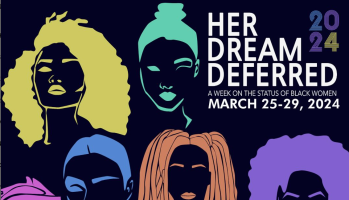If you think President Barack Obama has done little for the Black community, you likely have not been keeping up with the news. Here’s NewsOne’s short list of accomplishments that the President has achieved for Black Americans — and everyone else too.
SEE ALSO:
1) Awarded $1.2 Billion To Black Farmers
President Obama’s administration oversaw the $1.2 billion settlement awarded to Black farmers who have been denied loans and assistance by the Agricultural Dept. for decades.
This is the second round of settlements in a case filed in 1997, which alleged that thousands of black farmers had been discriminated against between 1983 and 1997. This round is directed at farmers who were not awarded payment because of missed filing deadlines. The judge said payments would likely be dispersed in a year or so, after neutral parties reviewed the individual claims.
This agreement will provide overdue relief and justice to African American farmers, and bring us closer to the ideals of freedom and equality that this country was founded on,” Obama said in a statement.
2) Expanded Funding For HBCUs
In February of this year, President Obama signed an executive order increasing funding for Historically Black Colleges and Universities (HBCUs) to $850 million over the next 10 years. The funding is being administered through the White House Initiative on Historically Black Colleges and Universities that was, ironically, started by the late Ronald Reagan.
Source: theGrio.
3) Signed The Crack Cocaine Bill (Fair Sentencing Act)
Crack users are disproportionately sentenced to longer jail terms than those who use powder. This unfair sentencing practice punished African Americans more severely than their white counterparts. With the signing of the Fair Sentencing Act, though, President Obama narrowed that disparity significantly.
President Obama signed into law Tuesday the Fair Sentencing Act, which narrows the huge disparity in punishment given to those convicted of possessing crack cocaine versus those found with the drug in powder form.
The gap has been of particular concern to the African-American community. Crack users tend to be poorer than those who use powder – and disproportionately African-American.
Under the old law, someone convicted of possessing five grams of crack cocaine received a mandatory five years in prison. Those convicted of possessing powder cocaine had to be holding 100 times that amount to get the same mandatory sentence.
Source: The Washington Post
4) Passed Health Care Reform (Affordable Care Act)
More than 19 percent of African Americans do not have health care, according to TheRoot. When the highly debated health care reform bill was signed into law in March of 2010, millions of African Americans benefited.
As reported by the blog “Jack and Jill Politics,” Blacks will enjoy a number of benefits that the bill provides:
The Affordable Care Act expands insurance coverage by a number of mechanisms the some examples include establishing the Pre-Existing Condition Insurance Plan, which is working to make health insurance coverage available to individuals who have been uninsured for at least six months and have been denied health insurance because they have a pre-existing condition. By 2014, this program will end and will be replaced by new health insurance exchanges.
Also by 2014 Medicaid will be expanded to cover individuals under age 65 with incomes up to 133% of the federal poverty level. In 2014, using 2010 federal poverty guidelines, 4.1 million African Americans making less than $14,403.90 and a family of four making less than $29,326.50 will be eligible for Medicaid. In addition, individuals without dependent children or who are not pregnant will now be eligible for Medicaid once this provision is enforced beginning in 2014.
Coverage for preventative conditions many of which disproportion ally impact African Americans. As of September 23, 2010, requires health plans to cover certain preventive and immunization services without charging a deductible, co-pay or coinsurance. This applies only to care delivered by in network health professionals. Specifically, new health plans will have to offer consumers 45 free screenings and other preventive services, similar changes will affect Medicare and Medicaid beneficiaries Seniors enrolled in Medicare will no longer have to pay for preventive services starting January 1, 2011.
Additionally, the health reform law provides new funding to state Medicaid programs that choose to cover preventive services for patients at little or no cost starting January 1, 2013. These include (note from Jill, I’ve bolded the ones that impact African-Americans especially):
• Blood pressure testing
• Cardiovascular screening
• Cervical cancer screening
• Cholesterol measurement
• Colorectal cancer screening
• Depression
• Diabetes screening
• HIV testing
• Immunizations and vaccines
• Mammograms
• Obesity screening and counseling
• Screening newborns for sickle cell disease
Already in 2010, adults enrolled in Medicare Part D received a tax-free, one-time rebate check of $250 when they reached the Medicare drug coverage gap or “donut hole.” The donut hole refers to the gap in coverage enrollees face between the initial coverage limit and the yearly, out-of-pocket limit known as the catastrophic coverage threshold during which beneficiaries have to pay for the entire cost of their prescription drugs.
Beginning in 2011, enrollees with high prescription drug costs that put them in the donut hole will get a 50% discount on covered brand-name drugs and reductions in the cost of generic drugs while they are in the hole. Between 2010 and 2020, Part D enrollees will get increasing, continuous Medicare coverage for their prescription drugs; by 2020, they will pay only 25% out of pocket for the total cost of their drugs and the donut hole will be eliminated.
Sources: cbsnews, Jack and Jill Politics and TheRoot
5) Created The Civil Rights Division Of The Justice Department
The U.S. Justice Department is leading one of the most aggressive defenses of civil rights in recent memory. Whether it is clamping down on Arizona for its bias against Latinos or fighting unjust state voter ID laws, this Justice Department has been fully engaged in fighting for the rights of all minorities. When President Obama chose Eric Holder to lead the department, he picked a true champion of civil rights. For a rundown of how powerful the Civil Rights Division has become, check out this article by TheRoot.
Sources: The New York Times, cbsnews
SEE ALSO:













